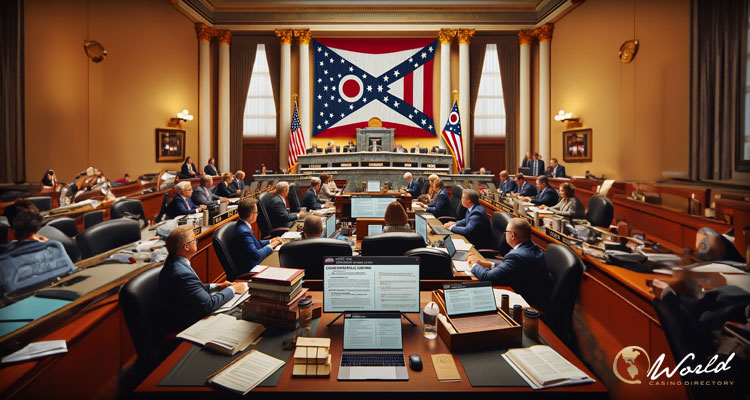In a recent proposal, some Republican state lawmakers in Ohio are advocating for the introduction of mobile lottery sales and casino games, including blackjack and poker, on smartphones. This move aims to modernize the state’s gambling landscape and tap into the burgeoning mobile gaming market.
During a panel discussion on Friday, the lawmakers presented their recommendations regarding the future of gambling policy in Ohio, specifically addressing what types of bets can be placed and where. However, opinions varied among the participants, three Republican figures—House Finance Chairman Jay Edwards, Reps. Jeff LaRe and Cindy Abrams—argued that it is time to embrace “iGaming” and “iLottery” technologies in the state, according to the Cleveland.com news portal.
The trio cited the experience of other states where iLottery and iGaming have been implemented, noting significant increases in tax revenues generated from these platforms. They observed that despite the expansion of online gaming, in-person sales continued to rise. This trend was attributed to the growing comfort and familiarity of users with mobile gambling, which in turn encouraged more people to visit physical locations.
The lawmakers’ recommendations followed the creation of a temporary committee mandated by the state budget to explore the “future” of gambling in Ohio. This development came amidst lobbying by some casinos for iGaming and iLottery, even as other casinos with physical locations voiced opposition.
More Money for the State
Proponents of the proposal argue that Ohio could potentially generate between $205 million and $410 million annually in new tax revenue from iGaming alone. These estimates are based on average gaming revenue per adult in states like New Jersey, Pennsylvania, and Michigan, which have legalized such activities since 2013.
North Ridgeville GOP state Sen. Nathan Manning advised caution, pointing to the potentially addictive qualities of these games. However, he supported the idea of the Ohio Lottery selling tickets online, noting that third-party vendors currently provide similar services under the guise of “lottery couriers.”
The Republican lawmakers also took this opportunity to criticize the Ohio Casino Control Commission’s recent decision to ban college player prop betting, arguing that it does not address underlying issues such as harassment of student-athletes. They suggested that such actions should be investigated and prosecuted without banning prop bets altogether.
A Pivotal Moment
As part of a comprehensive 350-page report by the Study Commission on the Future of Gaming in Ohio (pdf), these discussions and proposals are laid out with the intention of guiding future legislative action. The commission, which held four meetings earlier this year, was tasked with gathering industry testimony and other relevant information to inform its conclusions.
While the commission’s recommendations are not binding, they represent a significant shift towards potentially expanding mobile gaming options in Ohio. The state has already seen changes to its gaming landscape with the legalization and launch of sports betting in early 2023, alongside a doubling of the state’s tax rate to 20%.
This proposal marks a pivotal moment as Ohio considers joining other states in the adoption of mobile gambling platforms, aiming to enhance accessibility for users and increase tax revenues for the state. The outcome of these deliberations could set a new course for gambling in Ohio, impacting both the economy and the regulatory framework surrounding gaming.



